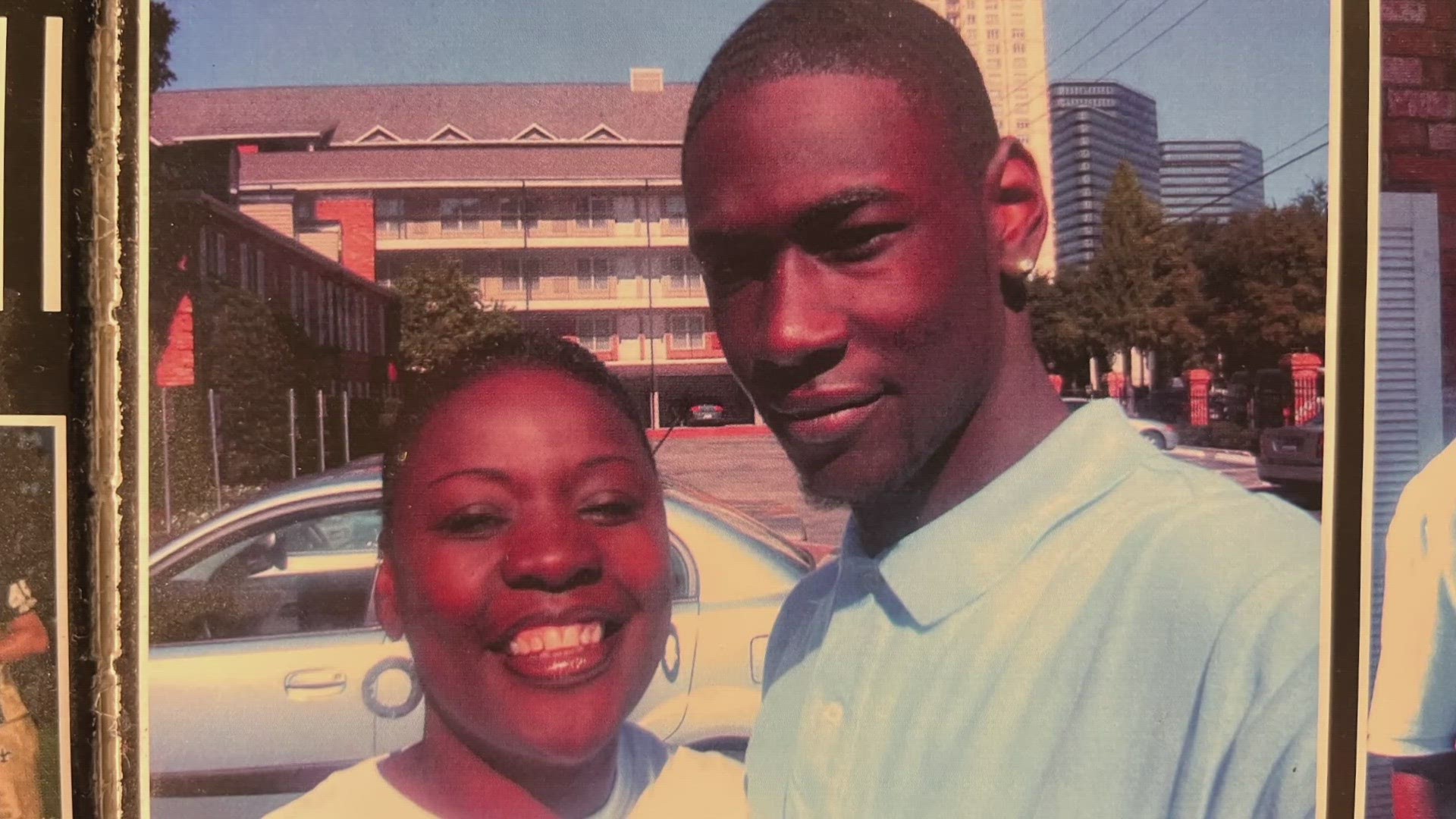JACKSONVILLE, Fla. — Harvetta Jackson knows the pain of losing a child to sudden cardiac arrest. She lost both of her children.
“This is what he loved to do. That's all he talked about was playing basketball for the NBA, and he just loved sports and he was great at it,” Jackson said looking at a picture of her son.
Phillip Jackson was a standout football and basketball player at Sandalwood High School in Jacksonville. As an athlete, he had a sports physical every year.
“They never detected a thing,” Jackson said.
What was supposed to be a day of celebration turned into one of the worst days of her life. It was her son’s 18th birthday, December 21, 2009.
“That was supposed to be the day of his life, you know, turning an adult, a young man, and we turned around and he was gone,” Jackson recalled.
She says there were no warning signs. Her son appeared healthy when he started playing the game. Big Phil as his friends called him was coming out of the locker room during a basketball game when he collapsed.
“He fell into one of his players. And then he's such a jokester, they thought he was just playing,” Jackson said.
She was there at the game with Phillips' 16-month-old son. Then, "one of players came running out, ‘Miss Jackson, Miss Jackson, Phillip collapsed. Phillip collapsed’, and I ran in there and he was laying on the floor, and he was shallow breathing."
Her son suffered sudden cardiac arrest.
“No one did CPR, no AED machine, nothing,” Jackson said.
Phillip died at the hospital.
“They called it cardiac conduction system, where the heart misfires. And if no one does anything, we don't have AED machines there, or anything like that, CPR, they don't make it. And unfortunately, my son was one of those children,” Jackson said.
Sudden cardiac arrest is a life-threatening condition that causes a person's heartbeat to stop abruptly and unexpectedly. It's usually caused by an abnormality in the heart's electrical system.
“Really any child could potentially be at risk. But we know that competitive athletes are about three times the risk of their age match peers when we look at the scientific studies,” Dr. Jonathan Drezner said. “But still, any child, any adolescent, any young adult, could be at risk for sudden cardiac arrest.”
Dr. Drezner, Director for the Center for Sports Cardiology at the University of Washington, says about one in 300 young people has a heart condition that can lead to sudden cardiac arrest. These are conditions that can often be detected by an electrocardiogram, known as an EKG or ECG. It’s something Phillip never had.
“It's still hard every day, especially holidays and birthdays. It's really hard,” Jackson said. “He should still be here raising his son and holding his momma and hugging everyone.”
In 2016, she also lost her 29-year-old daughter, Latoya.
“They were born eight years apart, and I lost them eight years apart. She had a bad asthma attack. And then she went into cardiac arrest and passed away as well," she said.
She wants all families to know sudden cardiac arrest can happen to anyone at any time.
“You never know when it's going to happen. And it needs to be prevented. I mean they can collapse singing, dancing, walking, anything,” Jackson said. “We need to get these tests done so our children can live. I just want to make sure that no one else’s child passes away when we can do something about it.”
First Coast News is teaming up with the nonprofit, Who We Play For, for a free heart screening event Monday, January 8, 2024. All students age 10 to 22 can register now for an electrocardiogram. For details and to reserve a spot for your child click here.

